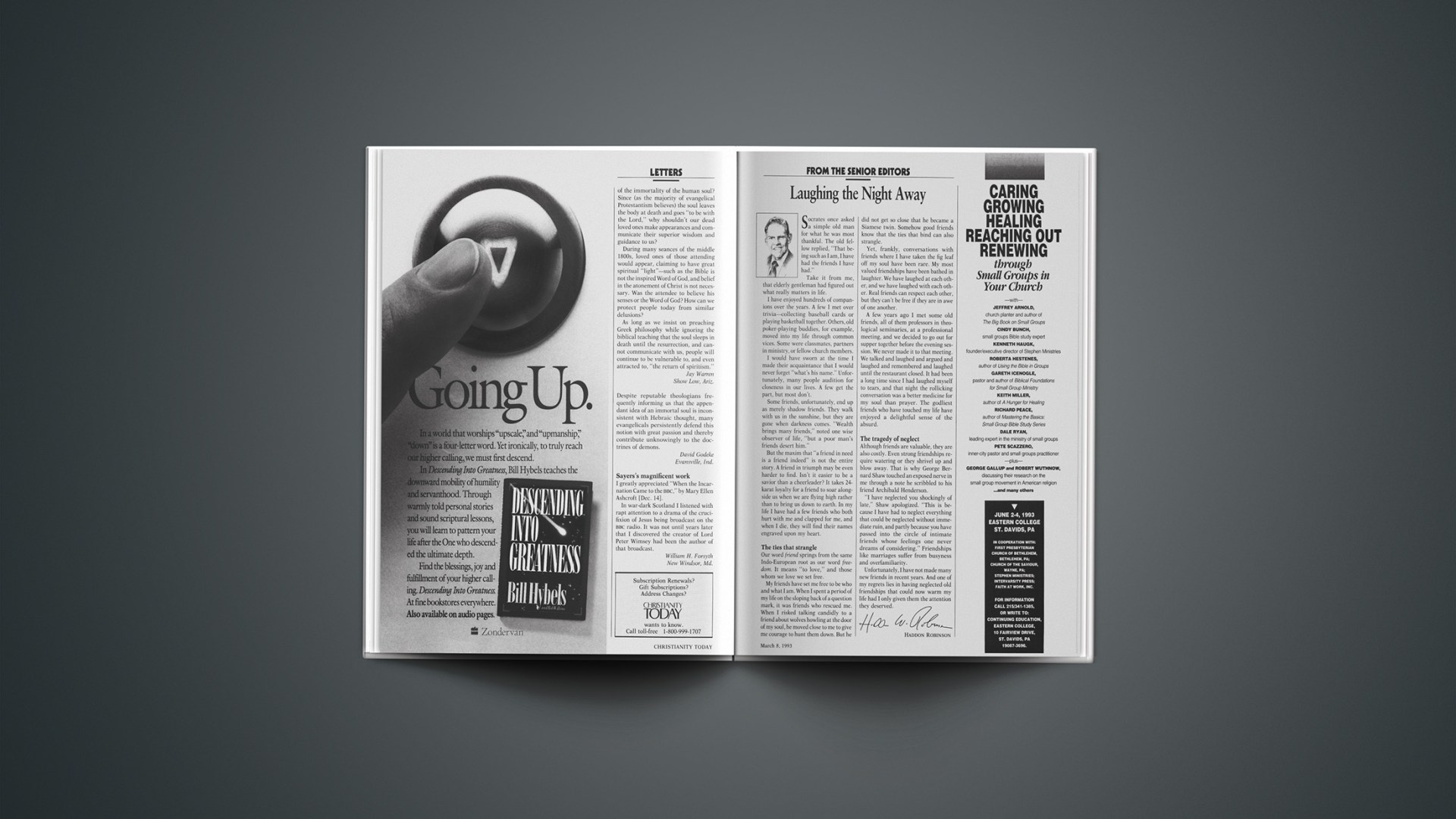Socrates once asked a simple old man for what he was most thankful. The old fellow replied, “That being such as I am, I have had the friends I have had.”
Take it from me, that elderly gentleman had figured out what really matters in life.
I have enjoyed hundreds of companions over the years. A few I met over trivia—collecting baseball cards or playing basketball together. Others, old poker-playing buddies, for example, moved into my life through common vices. Some were classmates, partners in ministry, or fellow church members.
I would have sworn at the time I made their acquaintance that I would never forget “what’s his name.” Unfortunately, many people audition for closeness in our lives. A few get the part, but most don’t.
Some friends, unfortunately, end up as merely shadow friends. They walk with us in the sunshine, but they are gone when darkness comes. “Wealth brings many friends,” noted one wise observer of life, “but a poor man’s friends desert him.”
But the maxim that “a friend in need is a friend indeed” is not the entire story. A friend in triumph may be even harder to find. Isn’t it easier to be a savior than a cheerleader? It takes 24-karat loyalty for a friend to soar alongside us when we are flying high rather than to bring us down to earth. In my life I have had a few friends who both hurt with me and clapped for me, and when I die, they will find their names engraved upon my heart.
The ties that strangle
Our word friend springs from the same Indo-European root as our word freedom. It means “to love,” and those whom we love we set free.
My friends have set me free to be who and what I am. When I spent a period of my life on the sloping back of a question mark, it was friends who rescued me. When I risked talking candidly to a friend about wolves howling at the door of my soul, he moved close to me to give me courage to hunt them down. But he did not get so close that he became a Siamese twin. Somehow good friends know that the ties that bind can also strangle.
Yet, frankly, conversations with friends where I have taken the fig leaf off my soul have been rare. My most valued friendships have been bathed in laughter. We have laughed at each other, and we have laughed with each other. Real friends can respect each other, but they can’t be free if they are in awe of one another.
A few years ago I met some old friends, all of them professors in theological seminaries, at a professional meeting, and we decided to go out for supper together before the evening session. We never made it to that meeting. We talked and laughed and argued and laughed and remembered and laughed until the restaurant closed. It had been a long time since I had laughed myself to tears, and that night the rollicking conversation was a better medicine for my soul than prayer. The godliest friends who have touched my life have enjoyed a delightful sense of the absurd.
The tragedy of neglect
Although friends are valuable, they are also costly. Even strong friendships require watering or they shrivel up and blow away. That is why George Bernard Shaw touched an exposed nerve in me through a note he scribbled to his friend Archibald Henderson.
“I have neglected you shockingly of late,” Shaw apologized. “This is because I have had to neglect everything that could be neglected without immediate ruin, and partly because you have passed into the circle of intimate friends whose feelings one never dreams of considering.” Friendships like marriages suffer from busyness and overfamiliarity.
Unfortunately, I have not made many new friends in recent years. And one of my regrets lies in having neglected old friendships that could now warm my life had I only given them the attention they deserved.
HADDON ROBINSON










